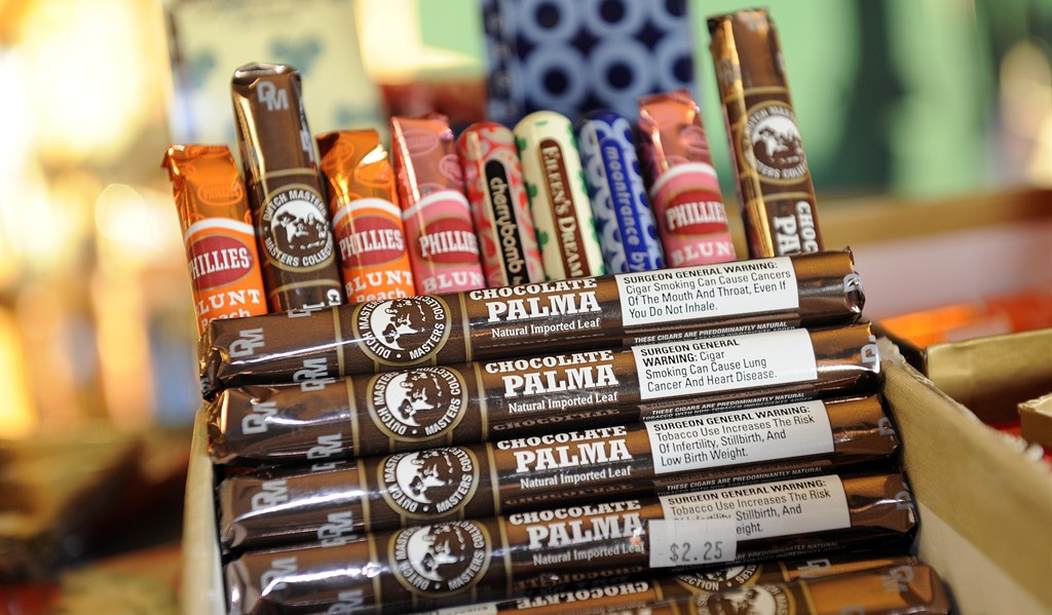For reasons passing understanding, the FDA announced recently that it was moving forward with invoking its authority to regulate cigars, along with other forms of tobacco.
It’s a part of the Tobacco Control Act, signed into law in 2009, which gave the agency the option of casting its net down on cigars at the time of its choosing. In other words – it was only a matter of time before bureaucrats decided to be bureaucrats.
It’s not set into stone, yet. Between now and July 9 the FDA will accept comments on its proposals, at which point it will the move forward with more regulations.
As someone who enjoys a stogie, I’m annoyed. As someone who thinks less is more when it comes to government red tape, I’m incensed. These new regulations amount to little more than higher costs that consumers will be saddled with the brunt of, all for benefits that reach nominal status at best.
What do they have in mind, exactly?
There are several potential avenues. The first would require all cigars made and introduced since February 2007 to be approved by the FDA. Because bureaucracy, timeliness, and efficiency. A second option would be proving that a new product matches the fitness of those produced before the starting date.
Cigar aficionados have noted that it should be easy, but if the FDA’s other dealings with tobacco offer an example, it won’t be. Some 4,000 applications for tobacco products under the agency’s jurisdiction have been submitted since the Tobacco Control Act’s passage, only 34 have gotten a ruling one way or the other.
Recommended
Post-advocacy efforts, they’ve offered what appears an olive branch at surface level. As is often typical of the federal government, it’s anything but.
The exemption is directed the way of “premium” cigars. While many have long pushed for something along these lines, the FDA’s version of it amounts to a wholesale stifling of the marketplace.
The guidelines for such an exemption consist of eight points, two of which are most troubling. One states that for a cigar to be “premium,” it mustn’t “have a characterizing flavor other than tobacco” and the other mandates that it must cost more than $10 to be exempted.
In other words – so long innovation, hello higher prices and more regulation.
How so? There’s a cigar seasoned with Maker’s Mark bourbon. While it meets one of the two, it’s characterized with something other than tobacco, so we’re assuming it’ll have to get in line.
The FDA makes no clarification of what its terms mean, which should trigger alarms from the get-go.
As for the cost threshold, at least one study has estimated that roughly 85 percent or so of cigars purchased by consumers will not make the proverbial cut. Given the entire process of approval and the bureaucracy behind it, it means new cigars under $10 are unlikely to see the light of day for quite a while.
The logic behind this is anything but logical.
There’s nothing showing a demonstrable health difference between cigars priced at $11 and those priced at $9. So what we’re getting is an arbitrarily-based price cutoff, not something rooted in science and tangible evidence. Congress has mandated as much from the FDA, but it’s clear they’re not interested in following such a procedure.
Common-sense regulations on tobacco are warranted and necessary, I’m not saying otherwise. What I am saying is that this reeks of little more than regulatory politics as usual, not a worthwhile use of taxpayer-funded resources.
The handmade cigar market is one catered exclusively towards adults and is responsible for more than a handful of American jobs.
A deluge of new regulations here will do little more than endanger those jobs and impose higher costs for no scientific reason. Taxpayers, cigar consumers in particular, shouldn’t be footing the bill for these shenanigans.

























Join the conversation as a VIP Member